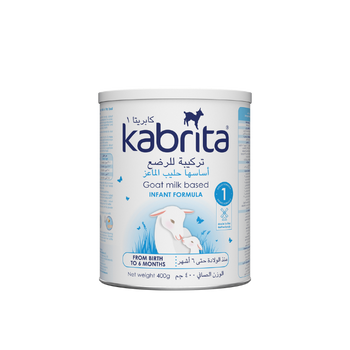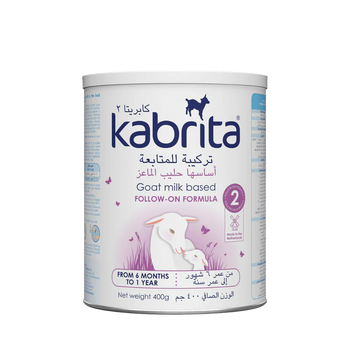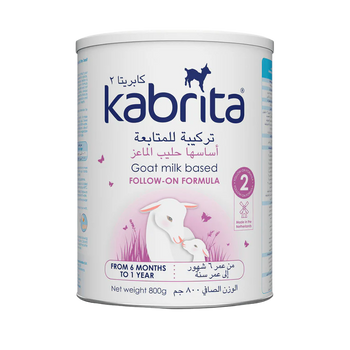FAQ Category: General Questions
Kabrita is a premium, gentle and nutritious goat milk formula alternative to traditional cow milk made with love for little tummies. Sourced from high-quality Dutch goat milk, it’s designed to be easy to digest, helping your baby feel comfortable and happy.
Kabrita is made in the Netherlands, a country known for its high dairy standards. From grass to glass, every step is carefully monitored to ensure your baby gets only the best quality milk.
Kabrita’s secret is in its naturally easy-to-digest goat milk! It contains A2 beta-casein protein, making it a gentler alternative to cow’s milk-based formulas. Many little tummies love the switch!
Goat milk formula is naturally gentle on tiny tummies. Thanks to its A2 protein and smaller fat globules, it’s easier to digest than cow’s milk. Plus, it contains natural prebiotics that help support gut health and keep your baby happy.
Kabrita isn't officially certified organic, but we hold ourselves to strict European diary farming standards. Our milk is high-quality, non GMO, and produced with great care for both the goats and your baby. Plus, Kabrita is Quali-GOAT certified, which guarantees premium goat milk sourced from well cared for healthy goats under strict quality controls.
No! We don’t use palm oil in our formulas.
Yes! Kabrita contains DHA, an important nutrient for brain and eye development. We source it from high-quality fish oil to give your baby the best support during these precious early years.
We’ve got your little one covered at every stage!
- Stage 1 (Infant Formula) – Birth to 6 months
- Stage 2 (Follow-on Formula) – 6 to 12 months
- Stage 3 (Toddler Milk) – 12 months+
- Stage 4 (Junior Milk) – 3 to 7 years
We don’t have trial-size packs, as we believe it takes more than one or two feedings to see if a formula is the right fit. But don’t worry, we stand by our product quality and offer a return guarantee if your little one isn’t happy with Kabrita!
Kabrita Gold was just our old packaging! Since 2020, we’ve updated the branding, but the same high-quality formula you love remains unchanged.
Our happy, healthy goats enjoy a balanced diet of:
- Fresh grass
- Hay & straw
- Maize silage
- Pulp
- Pellets and other nutritious grains and fibers
This diet ensures they produce high-quality milk rich in nutrients for your little one. And don’t worry, our farmers make sure the goats get plenty of water too! A typical milk goat drinks about 10 litres of water per day.
Just like human babies, newborn goats drink their mother’s milk! Right after birth, they get colostrum, which helps build their immune system.
You guessed it...it’s Kabrita!
- Over 85 years of expertise in infant formula
- Trusted by parents in 26+ countries
- EFSA-approved for safety & nutrition
- Proudly made in the Netherlands






